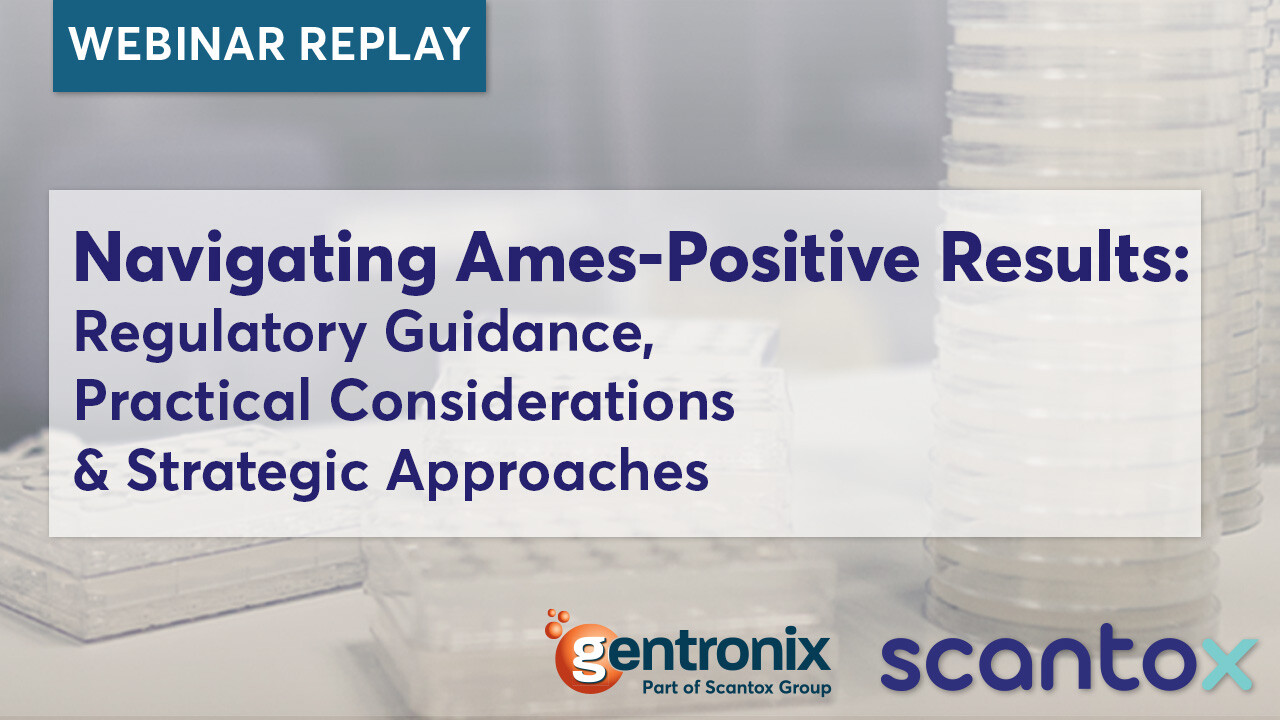Navigating Ames-Positive Results: Regulatory Guidance, Practical Considerations and Strategic Approaches
Regulatory agencies have increased their focus on the assessment of mutagenic hazards, including both somatic and germ cell effects, in active pharmaceutical substances and their impurities. This scrutiny has been further amplified by challenges such as nitrosamine-related impurities, necessitating robust hazard detection and safety assessment approaches.
Join Matt Tate, PhD, Managing Director of Gentronix, part of Scantox Group, for "Navigating Ames-Positive Results: Regulatory Guidance, Practical Considerations & Strategic Approaches" recorded on Wednesday, April 9, 2025.
This webinar builds on key insights from SOT 2025, exploring FDA’s draft guidance for navigating Ames-positive results. We’ll cover stepwise testing strategies, including in vitro and in vivo follow-up approaches, study design considerations, and weight-of-evidence development. Attendees will gain practical guidance for applying the regulatory framework to real-world drug development decisions.
Key Learning Objectives
- Understand the evolving regulatory landscape for mutagenicity assessment.
- Gain insights into testing strategies for Ames-positive substances and impurity-related mutagenicity concerns.
- Learn key decision points for in vivo follow-up studies in alignment with regulatory expectations.
- Review recent regulatory feedback and best practices for study design and data interpretation.
Meet The Presenter
Matt Tate, PhD, is a recognized expert in genetic toxicology with over 20 years of experience at Gentronix, part of Scantox Group. Initially focused on developing advanced screening assays, Matt transitioned into strategic leadership, shaping the company’s growth into a premier predictive toxicology CRO. With a deep operational understanding and extensive engagement with global regulatory bodies, he helps sponsors implement the most effective testing strategies to address mutagenicity concerns. Holding a BSc in Biochemistry from the University of Leeds and a PhD in Genetic Toxicology from the University of Manchester, Matt continues to bridge the gap between cutting-edge toxicology science and practical regulatory applications.
